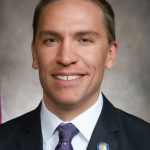Gov. Evers, WisDOT Announce $22 Million to Support Transportation Projects Aimed at Improving Air Quality, Reducing Traffic Delays and Congestion
Federal funding supports bus route expansion, smart traffic signal installation, bike path and trail upgrades, and more
MADISON— Gov. Tony Evers, together with the Wisconsin Department of Transportation (WisDOT), today announced over $22 million in federal funding from the federal Congestion Mitigation and Air Quality (CMAQ) Improvement Program to support local projects aimed at reducing traffic delays and congestion, increasing travel efficiency, and reducing air pollution across Wisconsin. This announcement builds on Gov. Evers’ efforts since 2019 to bolster the state’s clean energy infrastructure, ensuring Wisconsin’s communities are prepared to address the needs of the 21st Century, helping improve the health and well-being of Wisconsinites across the state, and lowering long-term energy costs.
“Connecting the dots between protecting our environment, reducing traffic congestion on our roads, and building safer, more sustainable infrastructure is critical for improving Wisconsinites’ quality of life and building the sort of future we want for our communities and our state,” said Gov. Evers. “With this funding, we’re working to build the strong and resilient 21st-century infrastructure that Wisconsinites need and expect.”
The CMAQ Improvement Program is a federal reimbursement program administered by WisDOT that provides an 80 percent federal cost share to assist eligible communities with transportation projects that improve traffic congestion and air quality. Funds can be used for projects that improve traffic flow, upgrade technologies, or enhance roadway mobility. Efforts to upgrade public transit, bicycle and pedestrian facilities, and ridesharing programs are also covered by CMAQ. Wisconsin’s $22 million in CMAQ funds will go out to 16 eligible Wisconsin communities to implement sustainable transportation solutions. A complete list of the 16 projects can be found here.
“This funding helps to reduce travel delays, address real-time traffic issues, and provide alternative options for residents and visitors to travel around the state,” said WisDOT Secretary Kristina Boardman. “When we invest in projects that provide people with cleaner ways to travel, increase bicycle connectivity, and improve safety and efficiency, we’re making a difference for Wisconsin communities.”
The CMAQ program funds transportation projects located in eligible counties in the Northeast and Southeast regions of Wisconsin that result in emissions reductions. During the 2025-2028 CMAQ cycle, WisDOT received project proposals from both regions. An additional solicitation cycle for State Fiscal Years 2026-2030 is now open until Mon., Sept. 8, 2025, at 5 p.m. The CMAQ application materials, including application instructions and guidelines, are available here.
Gov. Evers has long championed efforts to promote climate resilience through innovative transportation infrastructure and clean energy initiatives. Gov. Evers created the Wisconsin Office of Sustainability and Clean Energy in 2019 with the goal of developing the Wisconsin Clean Energy Plan to promote the development and use of clean and renewable energy across the state, advance innovative sustainability solutions that improve the state’s economy and environment, and diversify the resources used to meet the state’s energy needs. The order also established the state’s goal to reach 100 percent carbon-free electricity by 2050 and charged the OSCE with ensuring the state is fulfilling the carbon reduction goals of the Paris Agreement.
Additionally, earlier this year, Gov. Evers and WisDOT celebrated the opening of the first electric vehicle (EV) charging stations in Wisconsin funded by the National Electric Vehicle Infrastructure (NEVI) Formula Program under the Bipartisan Infrastructure Law. Wisconsin expects to receive over $78 million in NEVI investments to support 53 projects across the state to bolster the state’s EV infrastructure.
Further, this announcement builds upon the work of Gov. Evers and the Evers Administration to improve safety and efficiency on Wisconsin’s roads. Since 2019, the state has improved more than 8,600 miles of roads and 2,000 bridges statewide. In fact, Wisconsinites could drive from Wausau, Wisconsin, to Disney World in Orlando, Florida, and back three times on the number of miles of roads fixed.
In each of his biennial budgets, Gov. Evers has secured historic investments in Wisconsin’s transportation infrastructure, and improving Wisconsin’s roads and bridges continued to be a priority for the governor in the state’s most recent budget.
The final 2025-27 Biennial Budget signed by Gov. Evers provides $1.1 billion in new funding for key transportation investments. This includes:
- Increasing General Transportation Aids (GTA) by three percent in both 2026 and 2027, which will provide municipalities with $33.2 million more over the biennium and counties with nearly $10 million over the biennium;
- A historic increase of nearly $333 million over the biennium in the state highway rehabilitation program;
- $100 million for the Local Roads Improvement Program;
- Continuing support for the Agricultural Roads Improvement Program, created by Gov. Evers in the 2023-25 biennium, with a $150 million investment to continue repairing and improving Wisconsin’s rural roads to help farmers and producers and the state’s agricultural and forestry industries move products to market safely and efficiently;
- $30 million of the $150 million secured for ARIP will be specifically targeted to bridge and culvert repair to help improve and repair deteriorating bridges across the state.
- $244.5 million to keep key projects, such as I-41 and I-39/90, on schedule;
- A 10 percent increase to paratransit aids, increasing funding by $687,600 over the biennium;
- Improving safety on Milwaukee County expressways with $38 million in expressway policing aids; and
- $50 million for the harbor assistance program, including $15 million for the Menominee Harbor Project and $20 million for the Port of Green Bay.
The 2025-27 Biennial Budget also improves ongoing transportation fund revenues by generating nearly $200 million in additional revenue to improve the sustainability of the transportation fund.
Gov. Evers also exercised his broad, constitutional veto authority to partially veto aspects of the budget that were outside of the bipartisan budget negotiations. More information about the bipartisan budget signed by Gov. Evers is available here.
NOTE: This press release was submitted to Urban Milwaukee and was not written by an Urban Milwaukee writer. While it is believed to be reliable, Urban Milwaukee does not guarantee its accuracy or completeness.






















